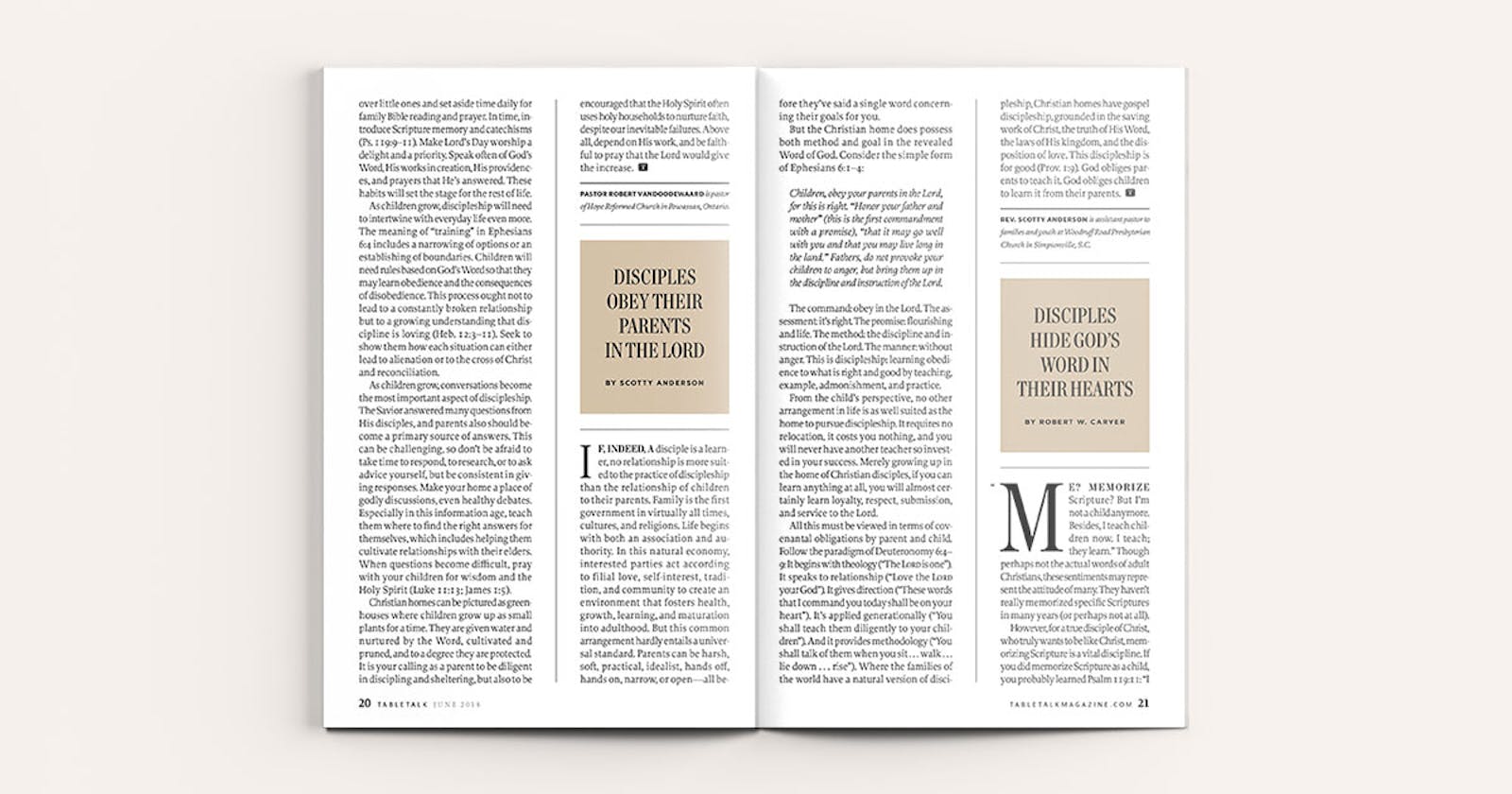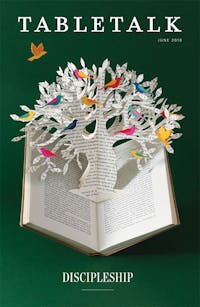
Request your free, three-month trial to Tabletalk magazine. You’ll receive the print issue monthly and gain immediate digital access to decades of archives. This trial is risk-free. No credit card required.
Try Tabletalk NowAlready receive Tabletalk magazine every month?
Verify your email address to gain unlimited access.
“Me? Memorize Scripture? But I’m not a child anymore. Besides, I teach children now. I teach; they learn.” Though perhaps not the actual words of adult Christians, these sentiments may represent the attitude of many. They haven’t really memorized specific Scriptures in many years (or perhaps not at all).
However, for a true disciple of Christ, who truly wants to be like Christ, memorizing Scripture is a vital discipline. If you did memorize Scripture as a child, you probably learned Psalm 119:11: “I have stored up your word in my heart, that I might not sin against you.” Psalm 119 is not only the longest chapter in the Bible, but it also is marked by noteworthy stylistic features. The Hebrew poem is divided into twenty-two stanzas, one for each letter of the Hebrew alphabet. Each verse within a stanza begins with a particular letter. This alphabetical structure was an aid for memorization.
Not only for its length and its literary form is this psalm noteworthy, but also for its lofty subject. From its beginning to its end, every single verse is about the Word of God. Stanza beth begins: “How can a young man keep his way pure? By guarding it according to your word” (v. 9). The stanza ends: “I will meditate on your precepts and fix my eyes on your ways. I will delight in your statutes; I will not forget your word” (vv. 15–16). The key to avoiding and escaping the snares of the enemy of our souls is to know the Word, meditate on the Word, and remember the Word. Nestled right in the middle of these instructions is the biblical mandate to memorize it.
One of the sacred tasks of a Jewish father was to acquaint his son with the Torah (Genesis–Deuteronomy) and to stress the importance of memorizing with precision what God had said (Deut. 6:4–7). Thus, the Law would be recited in the child’s hearing from his earliest days, and key passages would be repeated over and over. Since most homes were too poor to own their own collection of the Old Testament scrolls, the cultivation of the memory was essential.

One who memorizes Scripture will reap many benefits. Foremost is Scripture’s aid in resisting Satan’s enticements. Jesus’ response of “It is written” to each of the adversary’s temptations in the wilderness is the greatest illustration of this (Matt. 4:4, 7, 10). Furthermore, Scripture written on the tablets of the heart is there for meditation all the day long (Ps. 119:97). It aids the renewing of our mind so that our thinking is shaped by the indwelling Word (Rom. 12:2; 2 Cor. 10:5). God’s truth stored up in the heart will come more readily to mind in decision making, counseling, witnessing, teaching, etc. When we are beset with doubts and depression, the hidden store of God’s truth will be a sure and steady anchor for our storm-tossed ark.
So don’t delay. Start now. Choose a verse (or passage). Write it out. Review it regularly. Be accountable to someone. Learn it not to boast but so that you may live it and so that Christ may be seen in you.
